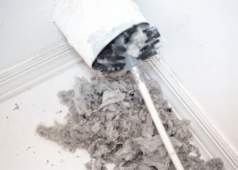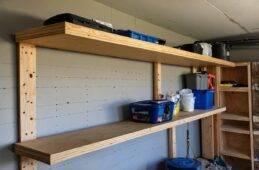A Comprehensive Guide for Window Air Conditioner Installation
When the summer heat becomes unbearable, a window air conditioner can be a lifesaver. Proper installation ensures optimal performance, energy efficiency, and safety. This guide will walk you through the entire process of installing a window air conditioner, from preparation to final adjustments. Whether you’re a first-time installer or looking to refresh your skills, our detailed steps and helpful tips will make the task easier and more manageable.
Ready to take on life with unshakable confidence? Whether you’re aiming to excel in your career, improve your relationships, or conquer DIY projects, NLP Hero’s Confidence Course is your key to success. Click here to start transforming your confidence and be better at everything you do!
Before you begin, ensure you have all the necessary tools and equipment, including a measuring tape, screwdriver, level, and weather stripping. By following our window air conditioner installation guide, you can enjoy a cool, comfortable living space without the need for professional assistance.
Step-by-Step Window Air Conditioner Installation Guide
Step 1: Measure Your Window and AC Unit
Start by measuring the dimensions of your window opening and the air conditioning unit. Ensure the unit fits comfortably within the window frame and that you have adequate support for the weight of the unit. Most window air conditioners come with a minimum and maximum window width specification, so double-check the manufacturer’s guidelines.
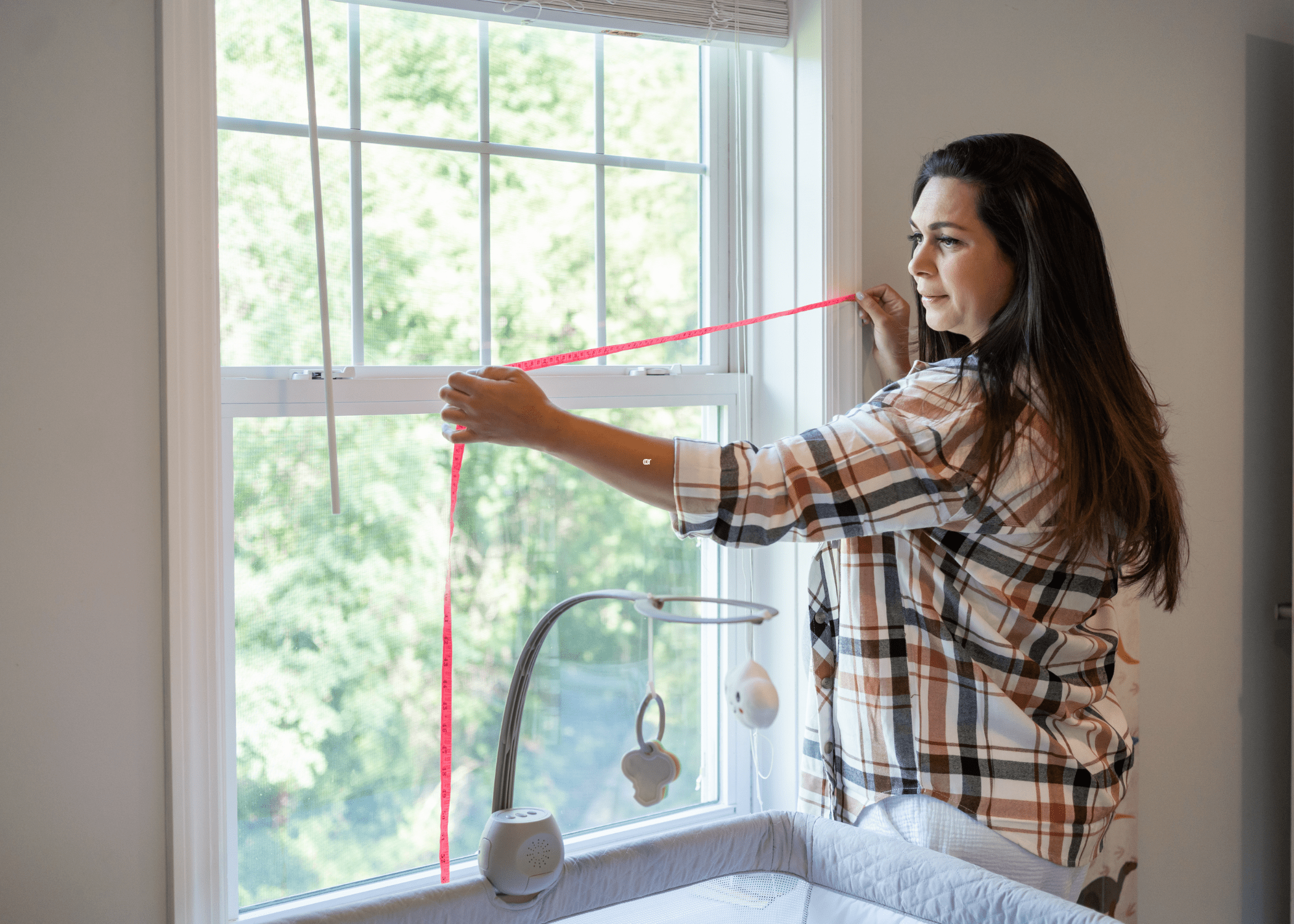
Step 2: Prepare the Window
Open the window and clean the sill and frame to remove any dirt or debris. Install the weather stripping (often included with the air conditioner) along the bottom of the window sash to create a tight seal and prevent air leaks.

Step 3: Install the Mounting Brackets
Attach the mounting brackets to the window frame according to the manufacturer’s instructions. These brackets will support the air conditioner, so ensure they are securely fastened and level. Use a level to check that the brackets are perfectly horizontal.
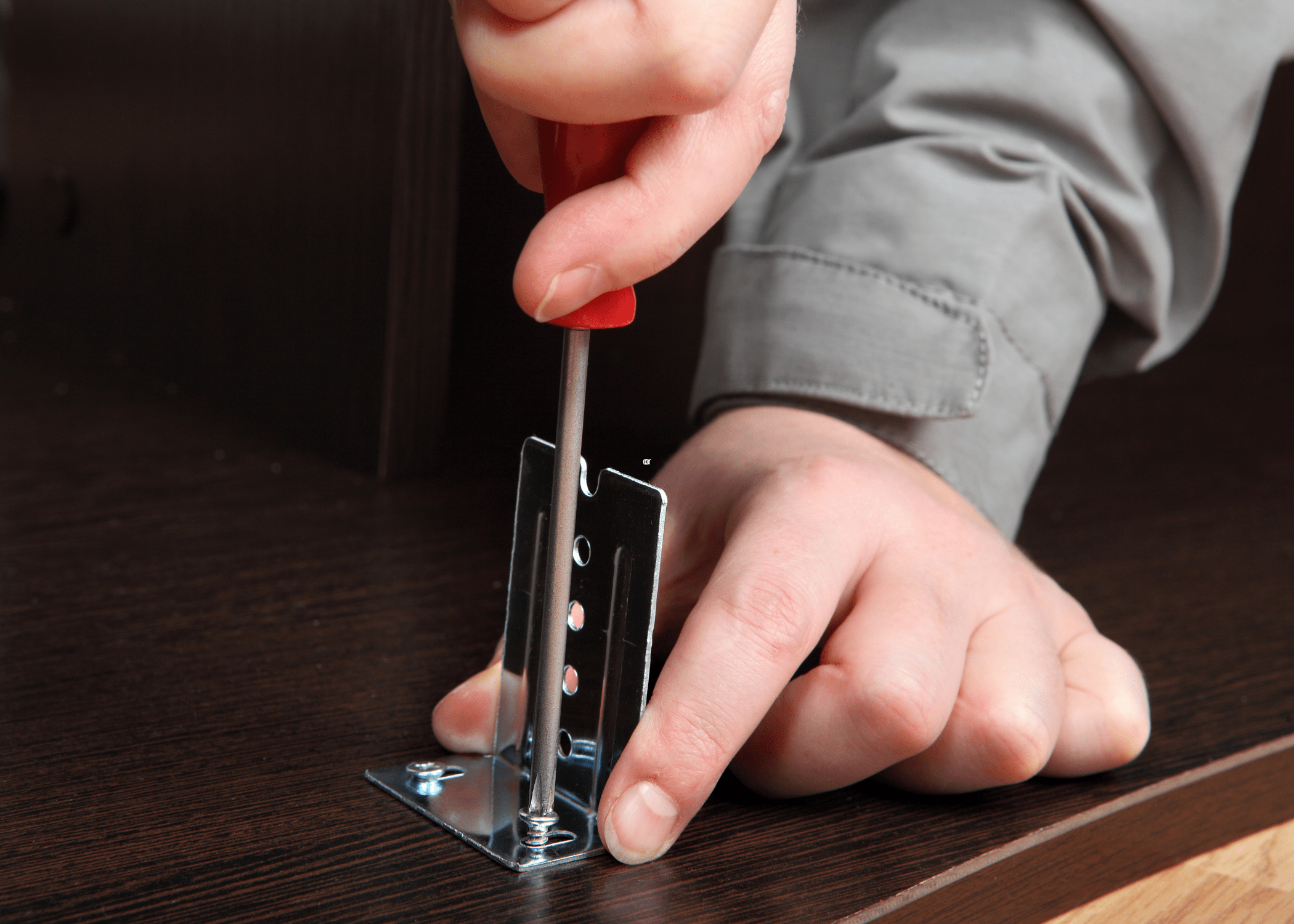
Step 4: Position the Air Conditioner
With the help of a friend, lift the air conditioner and carefully place it onto the mounting brackets. Slide the unit into the window opening, making sure the bottom rail of the A/C unit fits snugly against the weather stripping on the window sill.
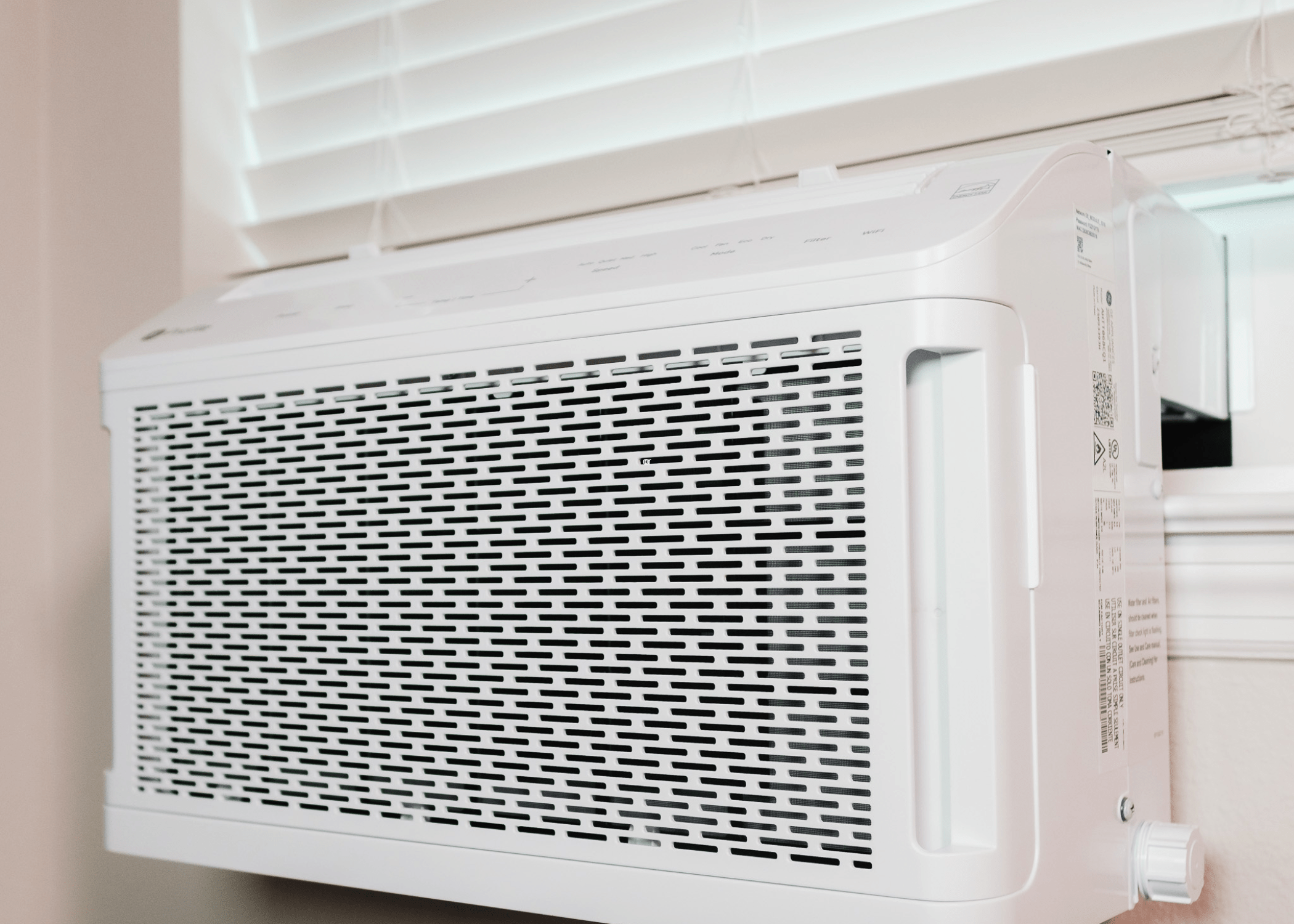
Step 5: Secure the Unit
Lower the window sash until it rests on top of the air conditioner, holding it in place. Use screws to secure the upper window sash to the frame, preventing it from being accidentally opened. Some units come with additional brackets or locks to further secure the window.

Step 6: Extend and Secure Side Panels
Extend the accordion-style side panels to fill the gaps on either side of the air conditioner. Secure the panels to the window frame using the provided screws or adhesive strips. This step ensures a tight seal and prevents warm air from entering the room.
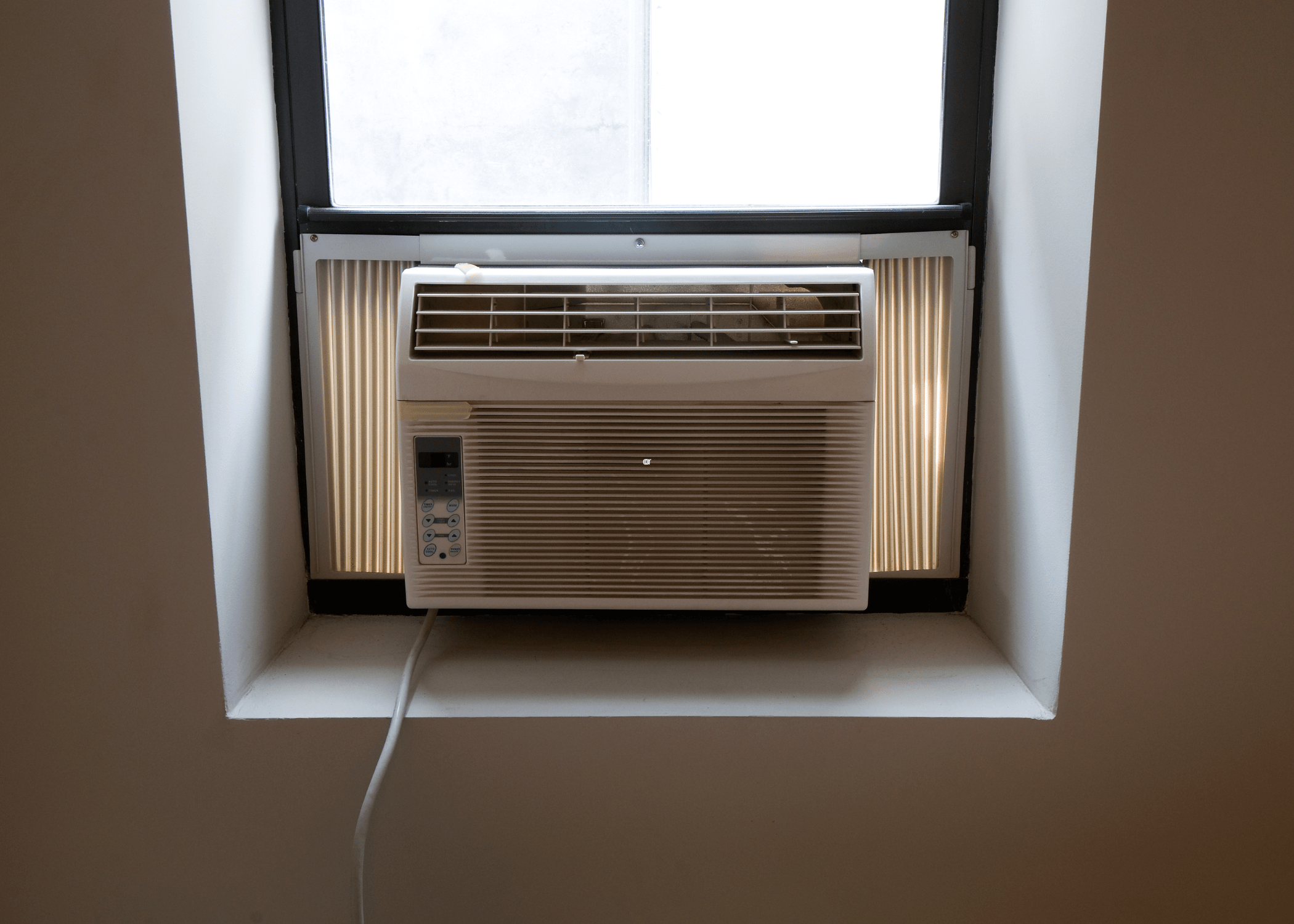
Step 7: Plug In and Test the Unit
Plug the air conditioner into a grounded electrical outlet and turn it on. Check for proper operation, including cooling performance and airflow. Adjust the temperature settings and fan speed to your preference.
Tips and Tricks for a Successful Installation
- Check the Window’s Structural Integrity: Ensure your window frame is sturdy enough to support the weight of the air conditioner. Weak or damaged frames may need reinforcement.
- Use Foam Insulation: For added energy efficiency, use foam insulation strips around the unit to seal any remaining gaps.
- Tilt the Unit Slightly: Some air conditioners require a slight tilt to help with water drainage. Follow the manufacturer’s guidelines on the correct angle.
- Regular Maintenance: Clean the air filter every few weeks to maintain optimal performance and energy efficiency.
- Store Properly in Off-Season: When not in use, remove the air conditioner and store it in a cool, dry place to prolong its lifespan.
By following these steps and tips, you can install your window air conditioner effectively and ensure it operates efficiently throughout the hot summer months. Enjoy the cool comfort of your home without the need for professional installation services.
Ready to start your next project? Join our DIY community to receive tool tips, how-to guides, and exclusive creative insights. Subscribe to the ManMadeDIY newsletter now! Click here to unlock a world of hands-on inspiration.
Frequently Asked Questions (FAQs)
Can I install a window air conditioner in any type of window?
Most window air conditioners are designed for double-hung windows. However, there are models available for sliding or casement windows. Always check the manufacturer’s specifications to ensure compatibility.
Do I need any special tools for installation?
Basic tools such as a measuring tape, screwdriver, and level are typically sufficient. Some installations may require additional tools, such as a drill or adhesive strips, depending on the unit and window type.
How much does a window air conditioner weigh?
The weight of a window air conditioner can vary significantly based on size and capacity, ranging from 40 to 100 pounds. It’s important to have help when lifting and positioning the unit to avoid injury.
Can I leave my window air conditioner in the window year-round?
It’s generally recommended to remove the air conditioner during the off-season to prevent damage from weather conditions and to improve energy efficiency. If you choose to leave it installed, consider using a weatherproof cover.
How do I improve the energy efficiency of my window air conditioner?
Regular maintenance, such as cleaning or replacing the air filter, sealing gaps with foam insulation, and using drapes or blinds to block sunlight, can help improve energy efficiency. Additionally, choosing an ENERGY STAR-rated unit can reduce energy consumption.







